
UNITED NATIONS, Jan. 14 (Xinhua) -- An estimated 30,000 people may have been displaced due to the eruption of fighting between the Mali government and the rebel group, Ansar Dine, in central and northern parts of the country last week, the United Nations said here Monday.
"It is feared that the number of people affected may be greater as it has been reported that some Islamist groups have prevented people from moving South," the deputy UN spokesman, Eduardo del Buey, said at a daily news briefing here.
Del Buey made the statement just hours before the UN Security Council met behind closed doors to discuss the situation in Mali. The UN under-secretary-general for political affairs, Jeffrey Feltman, briefed the 15-nation Security Council.
The Security Council meeting was called by France, which on Monday called for international support for its operation to help Mali quash Islamist rebels.
Fighting erupted over the past days after the Mali government and the rebel group, Ansar Dine, failed to reach any deal in talks on a solution to the Mali crisis.
The Malian government forces have been fighting against the rebels who occupied the northern part of the country since a military coup in March 2012, when the democratically elected president was overthrown by mutinous soldiers.
In December, the Security Council authorized an African-led force to support Malian forces in recovering the north, but set no timeline for military action.
"The Mauritanian Ministry of Interior has confirmed that thousands of refugees are on their way from Mali to the border with Mauritania," del Buey said. "No significant numbers of refugees have been observed arriving in Burkina Faso and Niger."
Since March 2012, some 230,000 people have been displaced by the fighting and insecurity in Mali.
The World Food Program (WFP) said Monday that the conflict in the north of Mali has triggered wide displacement within the country and into neighboring countries, uprooting half a million people and placing pressure on vulnerable host communities still recovering from the Sahel drought, according to del Buey.
"Insecurity is severely limiting the WFP's access to the North, " he said. "However, the WFP has managed, through its partners, to move emergency food to 270,000 conflicted-affected people in the north, including 70,000 internally displaced persons."
"The WFP uses all available means of transport, including small boats reaching Timbuktu along the Niger River," he said.
In answer to questions, del Buey said that UN Secretary-General Ban Ki-moon had spoken with a number of leaders over the weekend on Mali. Those include French Foreign Minister Laurent Fabius and Ivorian President Alassane Ouattara, the chair of the Economic Community of West African States (ECOWAS).
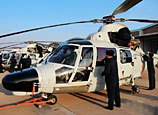
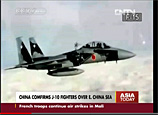
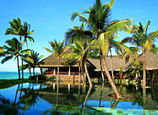
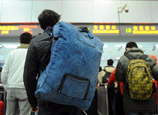
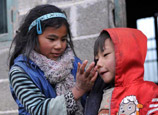
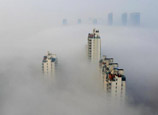










 Extinction of river dolphin: What does it mean for the Yangtze River?
Extinction of river dolphin: What does it mean for the Yangtze River?


![]()
